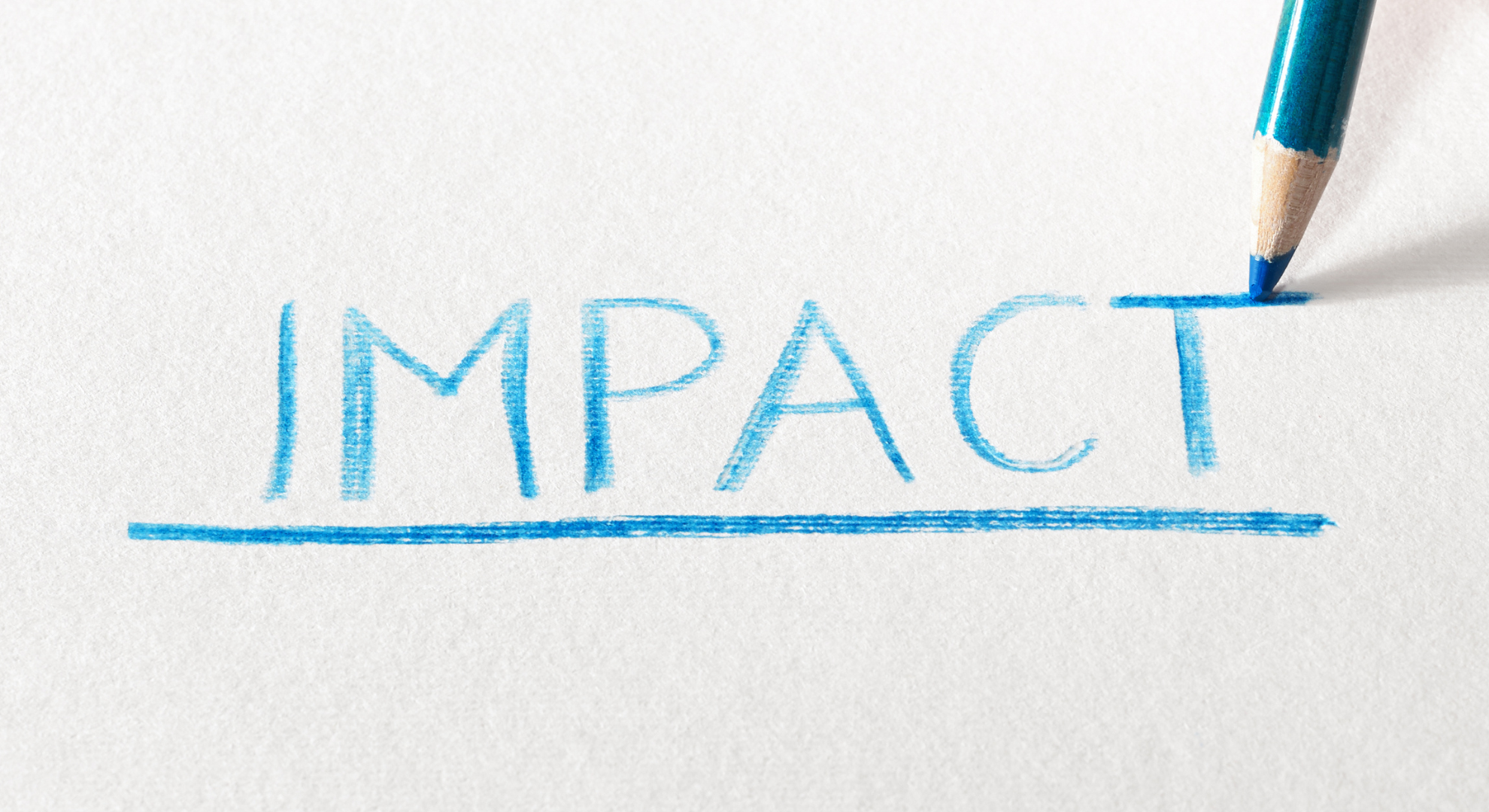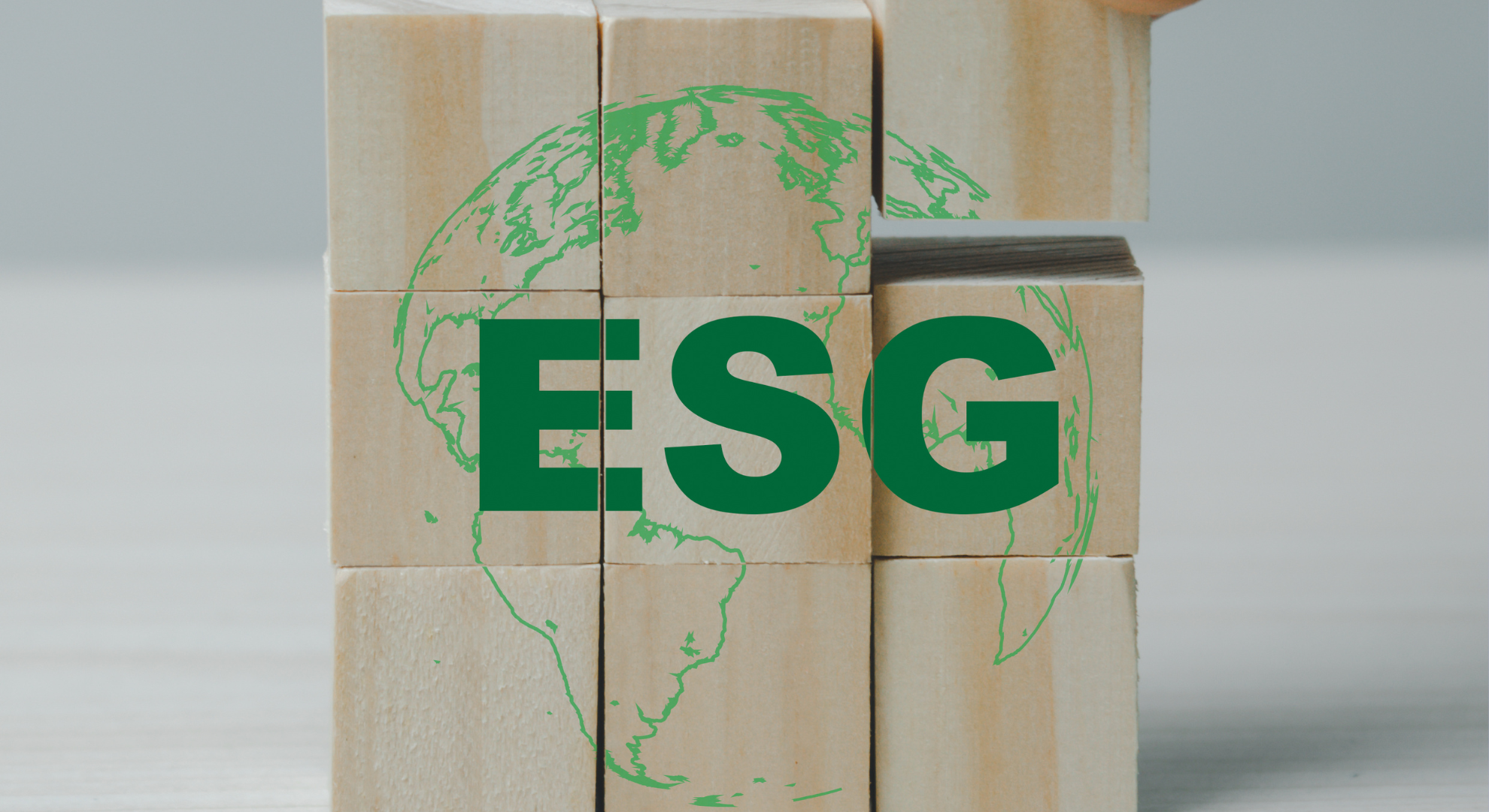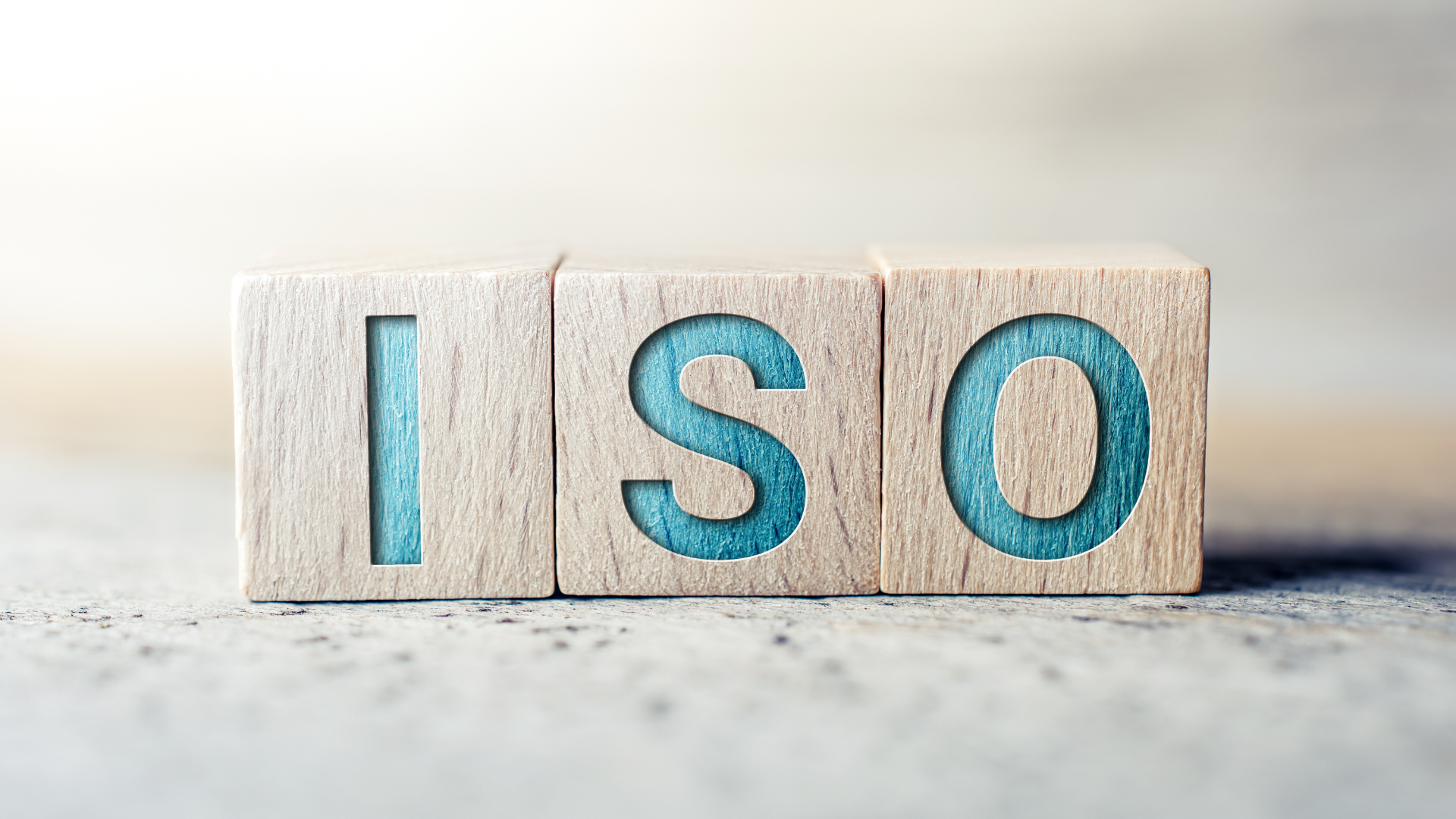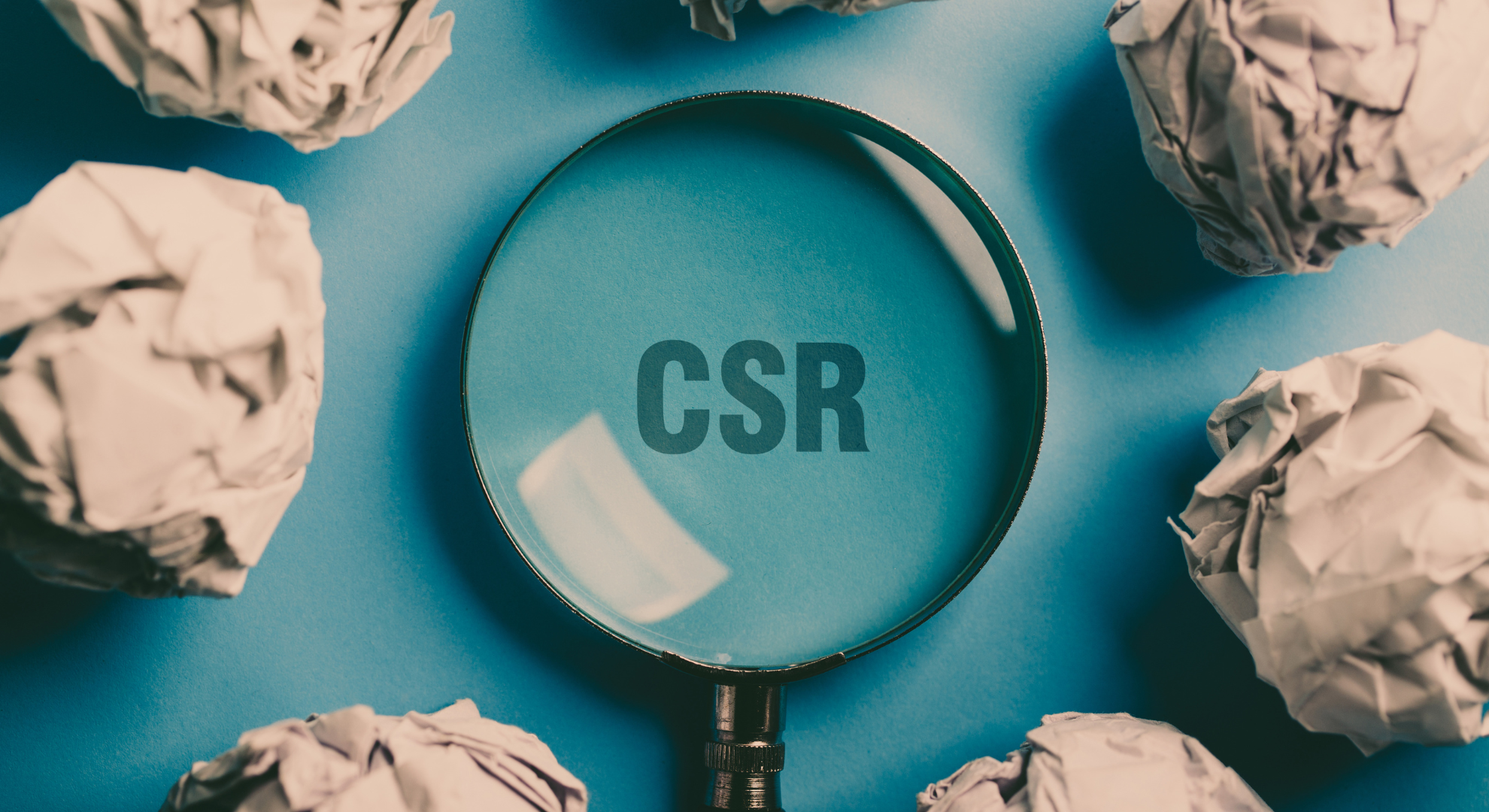What is EcoVadis?
Created in 2007, EcoVadis provides a collaborative web-based rating platform assessing the non-financial global performance of organizations, working towards increased insight into the sustainability performance of their suppliers.
The non-financial assessment by EcoVadis measures the sustainability management system of a company through 21 sustainability criteria focused on four key performance areas:
- Environment: impact from the production processes (energy consumption, water, biodiversity, local and accidental pollution, GHG emissions), impact from product use, and end-of-life
- Labor & Human Rights: Human resources management (accident prevention, staff training, working conditions, social dialogue) and Human Rights (respect for labor laws, diversity, discrimination)
- Ethics: corruption, anti-competitive practices, and information management responsibility
- Sustainable procurement: supplier environmental and social practices.

Source: EcoVadis, methodology
The methodology is based on international sustainability standards such as the Ten Principles of the UN Global Compact, the International Labor Organization (ILO) conventions, the Global Reporting Initiative (GRI)’s standards, the ISO 26000 standard, the CERES Roadmap, and the UN Guiding Principles on Business and Human Rights, also known as the Ruggie Framework.
The methodology also integrates sustainability regulations from +160 countries.
The evaluation is driven according to 7 EcoVadis founding principles:
- Evidence-based: the rated company must provide evidence and supporting documents and is responsible for them (strategic notes, certificates, reports)
- Industry, location, and size matter: the assessment takes into account specific issues related to the sector, presence in risky countries, size, and geographic scope
- Diversification of Sources: The rating takes into account standpoints published by NGOs, trade unions, international organizations, local authorities, or other third-party organizations (e.g., auditors, CDP, external compliance database)
- Technology is a must: the EcoVadis IT system integrates learning, growth, rapid scalability and facilitates industrialization
- Assessment by International Sustainability Experts: the documents are analyzed by an international team of experts up to date with the latest best practices in sustainability
- Traceability and Transparency: the documents are stored securely and can be traced back. Rated companies may access to the most detailed results and to each scoring decision
- Excellence Through Continuous Improvement: EcoVadis has implemented and operates a company-wide quality management system supported by a client advisory board and a scientific committee.
For EcoVadis, an effective sustainability management system relays on three management layers Policies, Actions and Reporting On Results, separated into seven management indicators: Policies (POLI), Endorsements (ENDO), Measures (MESU), Certifications (CERT), Coverage – Deployment of Actions (COVE), Reporting (REPO) and 360° Watch Findings (360).

Who is EcoVadis for?
The EcoVadis rating is available to all companies and suppliers, excepting the companies operating in Manufacture of tobacco products (ISIC code 1200), Mining of coal and lignite (ISIC division 05), Manufacture of weapons and ammunition (ISIC code 2520), Manufacture of air and spacecraft and related machinery (ISIC code 3030).
The EcoVadis company users can be:
- Either a client company whose procurement executives request their suppliers to answer EcoVadis. Then they get access to easy-to-use scorecards and are allowed to monitor the sustainability performance of their business partners as well as their continuous improvement actions.
- Either suppliers that are requested to answer a client's request. After being rated, the suppliers may share their scorecard results with the member community or other share on the platform. This possibility may increase their business opportunities. This sharing requires their authorization, and the platform ensures the confidentiality of their sensitive information.
In total, EcoVadis covers more than 200 purchasing categories.
Industry leaders such as Verizon, Johnson & Johnson, Subway, Coca Cola European Partners, Salesforce, Renault-Nissan, ING Bank, and Nokia are among the +75,000 businesses populating the EcoVadis network.
Is EcoVadis to be responded to on a group or subsidiary level?
The EcoVadis assessment scopes allow participation at various organizational levels, from group levels (headquarters, holding, or parent company) to subsidiary levels (business unit, country-specific entity, manufacturing site, or regional operating company).
On a group level, the documentation provided has to cover all the underlying entities to avoid the risk of a lower score. For instance, in the case of a company ISO certified for an entity in a country, but not in other countries, it may be more beneficial to conduct the assessment on a subsidiary level in a country where the company is ISO certified.
Conversely, large companies with an overarching management approach or requested to complete the survey on multiple entities can process the assessment at the group level, as long as they can provide supporting documentation at this group level as well.
Why is EcoVadis important?
What are the benefits for for profit companies ?
The use of technology is a key part of EcoVadis assessment: the collaborative, integrated web-based platform helps monitor the sustainability performance of suppliers with reports and dynamic quantitative metrics.
For each of the four sustainability themes (Environment, Labor & Human Rights, Ethics, Sustainable Procurement), the easy-to-use scorecards give a clear, dynamic view on a company’s performance: insufficient, beginner, intermediate, advanced, and leader. This information helps to implement prioritized actions to focus on for improvement.
Since 2021, a dedicated and independent scorecard for Carbon has been added.
More qualitatively, strengths & improvement areas provide more details and insights into a company’s score, as in the figure below.

Source: EcoVadis, Strength and Improvement areas, https://ecovadis.com/suppliers/
Improvement areas are automatically added to the company’s Corrective Action Plan, pre-organized by priority.
The Corrective Action Plan (CAP) is a tool shared between the evaluated company and its client, in order to improve the CSR performance.
It is strongly recommended when the supplier’s score is below 47, choosing the 5-10 most important actions that are automatically proposed by the tool.
Uploading new documents does not impact the current scorecard, but will be considered for the next re-evaluation.
Unlike other ESG rating agencies, the EcoVadis assessment is built on thorough documentation analysis by a global team of sustainability experts from 50+ nationalities who will verify whether the company answers are supported by the proper documents and respect criteria.
How long is the recognition valid?
EcoVadis scorecards are valid for 12 months after publication.
Once the 12 months have passed, the company will still be able to access its scorecard (and the ones of suppliers) but will no longer be able to share the results publicly.
Companies subscribe to an annual fee ranging from €350 to €6,500, depending on the company size.
This subscription covers the EcoVadis assessment, access to the EcoVadis platform and resources, and the ability to share the company’s performance.
What is an EcoVadis rating? The step-by-step process
The EcoVadis assessment process takes place in 4 phases.

Source: https://ecovadis.com/suppliers/
Step 1: Registration on the EcoVadis website
The client is asked to create a company profile specifying the business activity and the contact information.
Step 2: Questionnaire
Once the registration is complete, a link and instructions (e.g. deadline to complete the questionnaire) are sent to create the account and access the platform.
The EcoVadis assessment can be conducted in 8 languages: English, French, Spanish, Dutch, German, Italian, Portuguese, and Chinese.
Documents can be submitted in all languages but it is preferable to upload documents in one of these languages, especially English.
According to the company sector, size and country, a tailored questionnaire is built by EcoVadis, and the procurement executives can request their suppliers to undergo the assessment throughout the platform.

Source: Nexioproject, The Ultimate Guide To EcoVadis
From the dashboard, the control panel displays which criteria are activated for the company evaluation and their level of importance: not activated, activated with medium importance, activated with high importance, or activated only in risk countries.
Step 3: Expert analysis
After filling out the questionnaire, EcoVadis ESG experts will assess the answers and the supporting documentation.
The process takes approximately 6 to 8 weeks, depending on the complexity of the information provided by the company and the number of documents submitted.
For this step, EcoVadis Analyst not only reviews answers and documents provided by the company but also external resources (media, NGOs, etc.).
360° Watch Findings:
A key distinguishing element of EcoVadis’ sustainability monitoring platform is the integration of external inputs, both during and between assessments, to augment company-provided documentation and data sources. The 360° Watch Findings help collect stakeholder inputs that may impact a company’s score. It combines Artificial Intelligence with human analysis to identify the most relevant stories within the past five years, both positive and negative, collected from over 100,000 public sources.
Step 4: Results
Once the answers are analyzed and results published, the platform notifies the company via email.
EcoVadis rating methodology
An overall final score out of 100 is given to the company.
It is a weighted average score, function of the size, industry and location of the company, on the four themes (Environment, Ethics, Labor & Human Rights, Sustainable Procurement).
This overall score reflects the quality of the company’s and its supplier network’s sustainability strategy, actions, and performances at the time of assessment.
The three management layers are given the following weights: policies account for 25% of the scoring, actions for 40% and results for 35%.


Source: https://ecovadis.com/suppliers/
The company scorecards can be easily shared with employees or customers and compared against peers in the industry, thanks to EcoVadis’ benchmark (see example below).

Example of a company’s benchmark performance (part of the EcoVadis scorecard)
Once the results are calculated, the company might receive an EcoVadis medal based upon the percentile rank of its score.
This percentile rank is calculated across all assessed companies in all industries, not per industry.
No medal is assigned for overall scores below 47, or if there is a low theme score (≤20) in any of the four themes (Environment, Labor & Human Rights, Ethics and Sustainable Procurement).
In January 2022, the reviewed criteria are as follows:
- Platinum - top 1% (overall score between 75 and 100)
- Gold - top 5% (overall score between 67 and 74)
- Silver - top 25% (overall score between 56 and 66)
- Bronze - top 50% (overall score between 47 and 55)

The medal shows the year in which the assessment was completed and can be used as external recognition on the company’s website and on communication to investors, trading partners, and customers.
The detailed rating methodology is available on EcoVadis’ website.
How to prepare for EcoVadis certification?
First assessment
The better prepared a company is, the easier it will be to complete the assessment process.
Each of the four themes covered is generally assigned to a specific department: Environment to the Corporate Social Responsibility (CSR) manager, Labor & Human Rights to Human Resources (HR) manager, Sustainable Procurement to the Procurement team, and Ethics section to the IT or Legal departments.
One person within the company should be appointed as being responsible for the overarching questionnaire, for collecting relevant documents and making sure they answer EcoVadis’ requirements.
The EcoVadis website provides some general guidelines and dedidated webinars to help companies understand its requirements.
For premium customers, the eLearning platform EcoVadis Academy offers introductory and advanced online courses in five languages (English, French, German, Spanish, and Chinese) aligned with the EcoVadis rating methodology.
The EcoVadis Academy enables administrators to track individual progress, monitor, and assign coursework to drive supplier sustainability improvement programs identified within a company’s scorecard.
Reassessment
The reassessment process may be initiated when the scorecard has expired or when the minimum score requested by a partner has not been reached.
Before starting reassessment, it is recommended that 1- the company reviews guidance provided within its previous scorecard, and 2- establishes a progress report, based on the corrective actions implemented following previous assessment.
Tips on how to ensure the best score
Supporting documentation requested by EcoVadis are crucial elements of the assessment.
Hereafter is a check-list to effectively prepare for the process:
- All documents must contain the company name, logo, date of implementation, and/or review date. All languages are accepted. Authenticity is key: if a document is created for satisfying the EcoVadis questionnaire, it will not be accepted.
- Policy documents should contain qualitative and/or quantitative objectives and pre-exist for more than three months before being uploaded on the EcoVadis platform. The validity period for a policy is eight years.
- Documents supporting actions should describe their function and how they contribute to the mitigation of relevant risks. Their validity period is eight years.
- Results: the validity of a reported KPI is two years.
EcoVadis allows a maximum of 55 new document uploads for one assessment.
Options for facilitation and aid from third-parties
Getting through EcoVadis assessment is complex and time-consuming. Most companies lack the expertise to complete it on their own and are prone to mistakes that could complicate matters further. But we can make everything smoother!
With apiday, there is an easier way. 🌿
Our AI driven technology helps companies automate their assessment process, while our experts provide tailored ESG consulting support.
So you can focus on what matters the most: implementing real change across the organization instead of filling out paperwork!
To simplify your EcoVadis journey, we created a five-step infographic: upgrade your ESG strategy and get your copy by clicking here.
Related articles
Global Reporting Initiative: What It Is and How to Do It
GRI stands for Global Reporting Initiative, and is an international independent standards organization that promotes sustainability reporting through the development of global standards for corporate responsibility, including environmental, social and governance (ESG) reporting...
Impact – What is Impact
The Corporate Sustainability Reporting Directive (CSRD) requires large businesses and SMEs to produce annual reports on their environmental and social impacts.
CSRD – What is CSRD
The Corporate Sustainability Reporting Directive (CSRD) requires large businesses and SMEs to produce annual reports on their environmental and social impacts.
Corporate Sustainability Reporting Directive: All you need to know
The Corporate Sustainability Reporting Directive is an EU regulation that will have a huge impact on how organisations report their environmental, social and governance (ESG) performance...
Sustainability – What is Sustainability
The GRI is an international independent standards organization and currently issues one of the most well-known standards for ESG reporting (GRI Standards).
Discover the latest Sustainability Recent Developments to improve your companies
Sustainability is a concept that evolves due to pressing sustainability challenges, worldwide issues, and its own concept limits. New concepts have emerged to think further and respond better to all the world’s current challenges...
GRI – What is the Global Reporting Initiative
The GRI is an international independent standards organization and currently issues one of the most well-known standards for ESG reporting (GRI Standards).
What is Materiality and Why it matters in business
Materiality is crucial for sustainability reporting because it allows companies to focus on the most important aspects of their sustainability efforts. A company can choose to report on all aspects of its sustainability program, but this would be extremely time-consuming and would probably not be very useful for investors and other stakeholders...
Materiality – What is Materiality
ESG is an acronym for Environmental, Social, and (Corporate) Governance. It refers to the non-financial factors of a corporation’s impact.
EcoVadis – What is EcoVadis rating
Created in 2007, EcoVadis provides a collaborative web-based rating platform for assessing the sustainability performance of organizations worldwide.
Impact-washing – What is Impact-washing
Impact washing can be defined as any marketing claim about a product/good/service/funds triggering a change in the real economy that cannot be supported by evidence.
ISO 26000 – What is ISO 26000
ESG is an acronym for Environmental, Social, and (Corporate) Governance. It refers to the non-financial factors of a corporation’s impact.
B Corp – What is B Corporation certification
ESG is an acronym for Environmental, Social, and (Corporate) Governance. It refers to the non-financial factors of a corporation’s impact.
The concept of impact on social and environmental issues and its implication for companies
Impact measurement is a powerful tool for companies to gauge their impact on social and environmental issues. In this article, we will discuss the concept of impact, its implications for organizations, and how it can be measured...
The most important and recent developments of ESG (Environmental, Social and Governance)
Being a B Corporation is not just about making profits and creating wealth for a company, it is a way of creating a more sustainable future for society! Discover our article about B corps and its benefits here...
The process for an enterprise to get the B corp certification
Becoming a B Corporation is an ambitious undertaking. This article will guide you through the steps required to become a B Corporation…
CSR – What is Corporate Social Responsibility
CSR is centered on the idea that businesses have a responsibility to benefit the society that they exist within—a broader view than the one that says businesses’ only responsibility is to produce economic profit.
What is a B Corporation: what this means and its benefits for companies
Being a B Corporation is not just about making profits and creating wealth for a company, it is a way of creating a more sustainable future for society! Discover our article about B corps and its benefits here...
The implications of ISO 26000 for companies
ISO 26000 is a standard providing direction for the application of social responsibility to the activities of an organization. But what does this mean? And how can organizations use it to create better and more sustainable business practices? Let's talk about it…
What is the meaning of CSR (Corporate social responsibility) and how to adopt it?
A Corporate Social Responsibility strategy refers to an organization's active consideration of the effects its activities have on the environment, employees, customers, and suppliers. Let's look at how your company could adopt such a program...
ESG – What is Environmental, Social and Governance
ESG is an acronym for Environmental, Social, and (Corporate) Governance. It refers to the non-financial factors of a corporation’s impact.
4 reasons companies should adopt CSR, Corporate social responsibility
CSR is all about managing a company’s externalities while creating sustainable value for stakeholders and continuous innovation for the business. Let's break that down and explore why...
Carbon disclosure project reporting: what is it and how does it work?
Read our article about The Carbon Disclosure Project (CDP), an extra-financial questionnaire that collects data on companies’ environmental practices and performance...
What are the differences between Corporate Social Responsibility (CSR) and Environmental Social Governance (ESG)?
These terms are both used to describe an approach for businesses to integrate social and environmental factors into their governance policies, strategies, processes, and programs. Yet, they're not the same. Let's explore their key differences...
Why is ESG (Environmental, Social and Governance) important for a business
ESG (environmental, social and governance) can help businesses make sound decisions, and investors achieve better long-term returns. Let's discover how...













